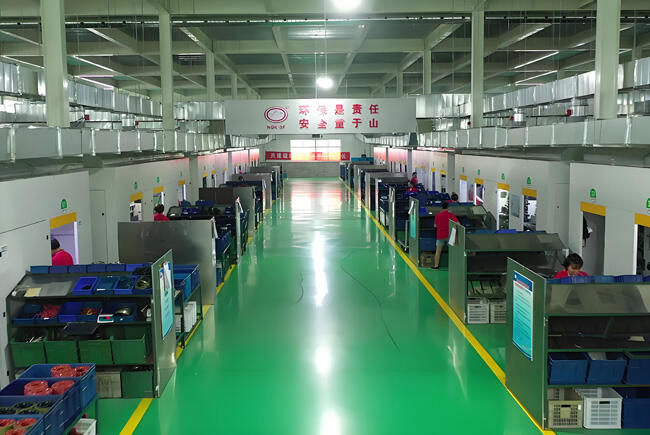oil Seal wuxuu sababi karaa dhibaatada buugga oo dhanaan markuu bixiyo. Ma aha mid tasaarrif ah ka dib marka loo eego komponentiyada kale, laakiin markuu bixiyo, khaladka ku jira wakhtiga laga soo saaray ayaa weyn. Sidaa darteed su'aasha badan oo maamuluhu ama maamuluhu iinta xisbiyada leh ay ku yidhaahdaan: Sidee aad u hubtidha inaad raaca qubee oilka aqoonsan—oo aan waluba midho jajab ah oo caawimo ah?
Bilowga waxa aadan arki karo: Xoolaha
Qubee oilka wanaagsan ma aha kaliya barbaska iyo falka. Xoolaha waa dhammaan.
Baarista badan waxay aqreenaa “kubaad waa kubaad,” laakiin ma aha sidaas. NBR (nitrile) waxay noqon karaan fudud marka lagu isticmaalo gacanta oo yaal, laakiin markaad u qarin kartiis gaadhifka sare, waxaad aragtaa in kubadda kuwaas waxa ku dhaadhacdaya in ay tahriibeen. Waxaad u baahan tidhaahda FKM (fluoroelastomer) si aad uga jecesho burburka kan. Sidaas darteed marka loo eego haysiga xoogga leh? PTFE ama kompaawndihii la beddelay waa in ay noqdeen caawinaad awoodsana leh.
Waxaan xusuusanayaa macmiilka ku tiisnaa habaabka haydaroolik: uu beddelay iskuulaha inuu ka bixiyo qiimaha. Dakhtar 3, dhammaan magaalooyinka waxay bixisay. Waxaannu furay iskuulaha iyo arkay in dhismaha ay koroshoobay in ay ku dhacaan additivihii gacantaha. Markaasaa uu dejiyey turjumada fluorinated ee uu jiray sano iyo ka badan.
Soo koob: Ogow idinkaga iyo burburka hor inta aad doorato iskuulka. Kan keliya wuxuu saameyn doonaa in 50% ka siinaya in aad iibsataa qof aan sax ahayn.
Mashruuculka Middleman
Ma rabtiddin nin kala hadla kamaayl—waxaad rabtaa nin uu abuurayo.
Midab saaxijsan ma aha "goob aan u dirayo wax kasto aad tusaaleeyso." Midab saaxijsan waa fabrik la socda, oo leh xidido khaas ah, labaado khaas ah, heer khaas ah oo isku daynaya iyo katalogga wanaajin kara.
Tusaale ahaan, NQKSF waa magac kuwa badan oo abnaqyska garanaysa sababtiisa:
30+ sannad oo dhan in ay sameyso saaxiijo
Ilaalinta iyo isku daynta guurka astaamaha
Kuwan 10,000+ saaxiijo caadiga ah ku jira goobaha, si toos ah loo diro
Soo saarka buuxa si loo sameeyo meelaha iyo jiidhka aan caadiga ahayn
Balxood la iibsaday 80+ duul
Lahantay akhri si loo ballaariro midab sare iyo marka astaamaha
Lahantay magacyada muhiimka ah ee ka bulshada
Wax tan ma aqbali karto inaad aragtid bogga alaabta—wax tan aqbali karta inaad hesho alaab taas, si toos ah lagala celiyey, si wanaagsan lagala saaray, si wanaagsan lagala dhexday, iyo si wanaagsan loo isku dayay.

Ma la iibsan kara inay leedahay dhaqdhaqaaqa furan?
Kala soocida naaf aamin ah ma ahan kala soocida "aan ka daadinayo maalintan." Waa kala soocid ayaad ogaataa inuu gudbeyn karay furo iyo tijaabada kiimikada ilaa inaad hesho.
Waxaad codsatid:
Qoraalka tijaabada xooggadeedka
Tijaabada jabil iyo hawlgal loo yaqaanaayo
Warqadda tolereynsidhayaal qaybaha
Records QC ee koodhka
Haddii abuurahaaga aanu heli karin, oo waxa uu bixi kara "ammaan, waa fiican"—waxaa laga yaabaa inaad ka bixisid.
Dul-Deegaanka Dhammaadka Waa Kaali Baadhisa Qiimo
Badankoodna kala soocidda waxaa loo iibsanyaa oo lagu farrooro...ilaa in ay daadin. Markaas waxaa lagu kulmay in abuurahaagu leeyahay aqoon farsamada ah.
Qaar ka mid ah biyaha, sida NQKSF, ay ka sii kor u socda inay laaqdo. Waxay siinaysaa "habka ku xidhidda sax af-soocitaanka"—tan macnaha waxay tix gelinaysaa habka aad u xidhidha, jiidka saafidda, dhaawacyada dhismeedda, sababtaasna waxay ku talisaa kalsoonida leh iyo fashilka leh + fikradaha furfurinta. Hadda, wuxuu idin xad laaban karaa lacag iyo shuqulka, gaar ahaan mudaharaha iyo OEMs.
Maxaa yeelay ma ahan kala duwan laaq galiyey—waxa kale oo ay tahay inaad ilaaliyaan mashinkii macmiilkaaga si qumman marka la dhameeyo bilowga.
Isticmaalka laaqda sidhi ah ma ahan hay'adaha farshaxanka, laakiinse waa shayna aan loo bixi karo. Ogow in aad isticmaasho iyo jiritaankooda. Iibso abbaalaha muhiimka ah, ma aha liiska farsamo. Codso dhaxlihii saxda ah, ma aha wacdiyada. Hubtow in aad furartid. Oo martid nin kama ay ka shaqeeya saddex bannaan—laakiinsi uu doortay inuu ka shaqeeyo ilaa danbe.
Ma aha inaad ahaato marxalin, OEM, ama madaxa falanka, xusuus tan: Laaq waa shay keliya. Waa ammaha siyaasadda.
Haddii aad mar dambe ula soo xasuusta in kaa shaqeeya mid kaas oo isku daynaysa in aad ugu filataan qaynta, ama haddii aad ku socotid doonayd dhaxalka, nala soo xiriir— waxaannu noqon lahaa warfaahda kan fudud, waxaanan ku farxaysaa in aan ku warramno waxaan helay.